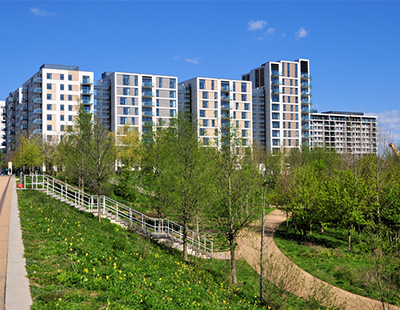PropTech platform Lavanda says urban property is changing thanks to the pandemic, and it tells agents, landlords and other providers to adapt.
Its report - “The new normal: how demand for urban accommodation has changed” produced with property firms Greystar, Aldar and Hubble - is 70 pages long and recommends how operators of multi-family, co-living and purpose built student accommodation must change.
Findings include that differing commuting habits have created new demand drivers for urban accommodation, suggesting opportunities for more short stay accommodation to city commuters.
Fred Lerche-Lerchenborg, Lavanda chief executive, says: “Much of the fabric of society has changed: the way we work, live and travel. So too has the glue that binds us as humans: the way we think, communicate and socialise. We’re now discovering a new normal. The future of work, living and travel are the three pillars of demand for urban accommodation. In short, what we need from residential buildings - and how we interact with them - has changed.”
The 12 key ‘takeaways’ from the report are:
1. Adapt and cater to “work from anywhere” - Rental housing should seek to understand and cater to remote working as it becomes increasingly prized amongst young professional and other core renter demographics;
2. Accommodate a new type of urban commuter - Operators should consider offering short stay accommodation to city commuters supported by a membership programme;
3. Understand what amenities are really prized by residents - The report says there will be growing demand from professionals seeking accommodation that better supports work-life balance and long-term mental health;
4. Embrace mixed use buildings - Urban buildings must reassess the role they play within their local geography and adapt to offer a changing set of services and solutions to their local community. This prompts a fundamental rethink of the classic residential operating model;
5. Innovate and solve for affordability - Developers and operators are obliged to seek more innovative housing solutions in order to address the rising cost of living;
6. Put flexibility at the heart of your community - Allowing residents to seamlessly move between communities for variable lengths of stay is largely expected to be the next evolution in rental housing;
7. Invest in digital-first rental experiences - Operators must invest in core technology to manage and offset the growing cost of attracting, engaging and retaining residents, “specifically direct booking experiences and resident apps to enable convenience, self-service and instant gratification”;
8. Understand the challenge of placemaking - As rental demand becomes more fragmented and transient, developing sustainable communities that attract and retain through their “authenticity” is a growing challenge for operators;
9. Embrace short and mid-term rentals - Accelerating demand from business and leisure travellers for flexible short and medium-term rental accommodation is driving new opportunities and a change in use of traditional residential buildings;
10. Optimise for marketing and distribution - An agile, scalable and futureproof distribution strategy is key to realising a portfolio’s potential;
11. Embrace subletting and homesharing - Operators must look to a new generation of amenities and technologies designed to enable greater mobility and support increasingly nomadic lifestyles;
12. Advocate for regulatory reform - Closer collaboration between tech, real estate and government is necessary to drive radical and rapid reform of the current regulatory landscape in order to ensure it aligns with the changing nature of rental demand.
-













%20-%20IMAGE%20Client%20Accounting%20%E2%80%93%20what%20are%20your%20options.jpg)









Join the conversation
Be the first to comment (please use the comment box below)
Please login to comment